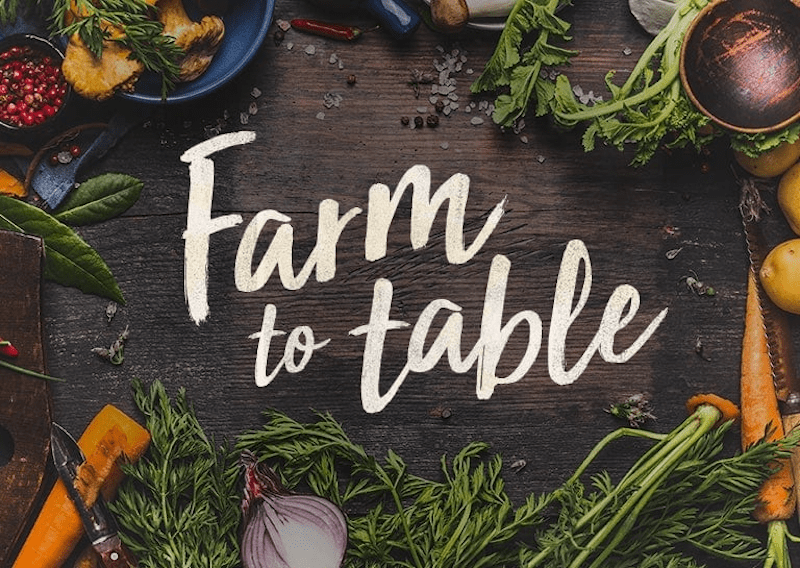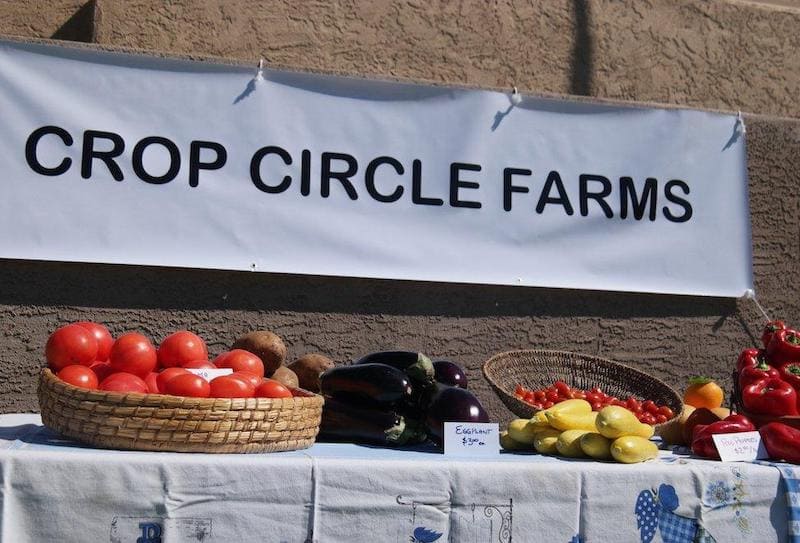
Most ardent food lovers are passionate advocates for sustainable agriculture, and have a deep appreciation for Community-Supported Agriculture (CSA). It's a concept that has significantly transformed the way we perceive food, particularly the last decade. For the uninitiated, CSA is a system where consumers buy shares from local farms, and in turn, receive a portion of the harvest throughout the farming season. It's a win-win situation for both farmers and consumers, as it offers financial security to farmers while providing fresh, local, seasonal produce to the consumers.
The beauty of CSA lies in its simplicity and its potential to reconnect people with the source of their food. It fosters a sense of community and instills an understanding and appreciation for the hard work that goes into farming. It's about more than just food; it's about nurturing relationships, promoting sustainability, and supporting local economies.
CSA is not a new concept; it has roots in the 1960s and 70s, when there was a growing recognition of the need for sustainable, local food systems. However, its importance has only grown in recent years, as consumers become more conscious about the impact of their food choices on the environment, their health, and their communities.
The Farm to Table Revolution is a movement that brings people closer to where their food is actually grown. It focuses on using locally sourced ingredients, which are often grown or raised on a sustainable, organic farm. It's a response to the industrialized food system, which is often criticized for its environmental impact, poor animal welfare standards, and diminishing nutritional value of produce.

The revolution is not just about eating; it's about understanding where our food comes from, how it's grown, and how it gets to our table. It's about recognizing the value of farmers, the chefs, and everyone else involved in the food chain. It's about celebrating food in its purest, freshest form and appreciating the seasons and the bounty they bring.
Farm to Table is also about making conscious food choices. It's about choosing to support local farmers and artisans over big corporate food conglomerates. It's about understanding the impact of our food choices on the environment, our health, and our local economies. It's about making a stand for what we believe in and using food dollars to support those beliefs.
Community-Supported Agriculture plays a pivotal role in sustainable agriculture. It provides farmers with a secure income, which allows them to focus on implementing and improving sustainable farming practices. These can include organic farming methods, crop rotation, and soil conservation techniques, which help to protect the environment, the soil, and promote biodiversity.
CSA also helps to reduce food waste, as farmers only grow what they know is presold. This is in stark contrast to the industrialized food system, where vast amounts of food are wasted from overproduction and over the top aesthetic perfect looking produce standards imposed by supermarkets.
Moreover, CSA promotes a more balanced diet because consumers receive a diverse range of seasonal produce such as lettuce in spring, carrots in throughout the summer and squash in the fall. This not only encourages people to eat more fruits and vegetables but also exposes them to new varieties that they may not typically be aware of.
The impact of CSA on fresh produce and organic farming is profound. As a provider for CSA, Crop Circle Farms can vouch for the unparalleled freshness and quality of the produce. Since the food is grown locally, it doesn't have to travel long distances and can be harvested at its peak, ensuring optimal freshness, flavor and nutrition.
CSA also provides a viable market for organic farmers, who often struggle to compete with conventional farmers because their produce is generally more expensive. By committing to buy directly from the farmers, CSA members ensure that organic farmers receive a fair price for their produce. This not only supports the organic farming industry but also encourages more farmers to transition to more sustainable organic farming methods.
Furthermore, CSA helps to preserve heirloom and heritage varieties of fruits and vegetables, which are often overlooked by the commercial market due to their irregular shapes and sizes. These varieties are not only delicious but also important for maintaining genetic diversity in our food system.
The concept of food miles refers to the distance food travels from the farm to the consumer's plate. The fewer food miles, the less carbon dioxide is emitted into the atmosphere, making it a crucial factor in reducing our carbon footprint.
CSA helps to minimize food miles by sourcing produce locally. This not only results in fresher, tastier food but also has a lower environmental impact. Additionally, because CSA farmers typically use organic, sustainable farming methods, the overall environmental footprint of the food is reduced even further.
Seasonal ingredients are another key aspect of the CSA model. Eating with the seasons means that we are consuming food when it is at its peak in terms of both flavor and nutritional value. It also means that we are eating a diverse range of foods throughout the year, which is beneficial for our health.
Farmers' markets are a vital component of the CSA model. They provide a platform for farmers to sell their produce directly to consumers, bypassing the middlemen and ensuring that farmers receive a fair price for their products.

Farmers' markets also offer an opportunity for consumers to meet the people who grow their food, take a tour of the farm, and understand where their food comes from. This connection between farmers and consumers fosters a sense of community and encourages people to make more sustainable food choices.
In addition, farmers' markets often provide access to a wider range of produce than traditional supermarkets. This not only exposes consumers to new varieties of fruits and vegetables but also encourages them to cook and eat more healthily.
The locavore Movement, which promotes the consumption of locally sourced food, is closely aligned with the principles of CSA. Locavores believe in supporting local farmers and artisans, reducing food miles, and eating with the seasons. They appreciate the freshness and flavor of locally grown food and understand the positive impact their food choices can have on the environment and the local economy.
The Slow Food Movement, on the other hand, is an international movement that advocates for a food system that is good, clean, and fair. It emphasizes the importance of preserving local food cultures and traditions, promoting biodiversity, and ensuring that food is produced in a way that respects the environment, animal welfare, and the people who produce it. CSA fits perfectly with these principles, as it supports sustainable organic farming practices, preserves heirloom varieties, and ensures that farmers receive a fair price for their produce.
In the wake of numerous outbreaks of food borne diseases, there is a growing demand for food traceability, i.e., the ability to trace food from farm to fork. Consumers want to know where their food comes from, how it's grown, and whether it's safe to eat.
CSA offers a high level of food traceability, as consumers buy directly from the farmers. They can visit the farm, meet the farmers, and see first-hand how the food is grown. This transparency builds trust and reassures consumers about the safety and quality of their food.
Moreover, CSA farmers often use organic, sustainable farming methods, which further enhances food safety. They avoid using synthetic pesticides and fertilizers, which can contaminate food and pose health risks. Instead, they focus on building healthy soil, promoting biodiversity, and maintaining a balanced ecosystem, which results in healthier, safer food.
Crop Circle Farms for example, grows produce in an entirely food-safe environment in which product never comes into contact with the soil or pooled water where pathogens may incubate.
CSA promotes eco-friendly farming practices, which are crucial for preserving our environment and ensuring the sustainability of our food system. These practices include organic farming, permaculture, and regenerative agriculture, which focus on building healthy soil, promoting biodiversity, and reducing greenhouse gas emissions.
Moreover, CSA encourages ethical consumption, as consumers make a conscious decision to support local, sustainable farms. They understand the impact of their food choices on the environment, their health, and their communities, and they choose to use their purchasing power to support a more sustainable, equitable food system.
Ethical consumption is not just about buying organic or local; it's about making informed decisions, asking questions, and demanding transparency. It's about recognizing the true cost of food, including the environmental and social costs, and being willing to pay a fair price for it.
Regional cuisine is deeply influenced by the local agricultural practices, and CSA plays a significant role in shaping these practices. By supporting local farmers and encouraging sustainable farming practices, CSA helps to preserve regional food traditions and promote local food cultures particularly in indigenous communities.

CSA also encourages people to eat a diverse range of seasonal produce, which can inspire creativity in the kitchen and lead to the development of new, exciting meals that can be enjoyed by the entire family. Moreover, by preserving heirloom and heritage varieties, CSA contributes to the richness and diversity of our culinary heritage – think the Mexican Southwest and the French influence of New Orleans.
One of the many benefits of CSA is the access to nutrient-dense food. Because the produce is grown locally and harvested at its peak, it is fresher and often more nutritious than the produce found in supermarkets, which often travels long distances and is stored for extended periods.
It is a fact, that nutrient content of a vegetable or fruit declines exponentially as it travels from the farm by truck to the supermarket.
Moreover, CSA farmers typically use organic, sustainable farming methods, which result in healthier soil. Healthy soil is rich in nutrients, and these nutrients are absorbed by the plants, growing more nutrient-dense food.
Edible landscaping is a farm and garden activity that combines beauty and utility by incorporating edible plants into ornamental landscapes. It's a wonderful way to make the most of our urban spaces, grow our own food, and create beautiful, productive gardens.
CSA can play a role in promoting edible landscaping, by providing a market for the produce grown in these gardens. It can also inspire people to start their own edible gardens, by exposing them to a wide variety of fruits and vegetables, including many that are not typically found in supermarkets like heirloom tomatoes, for example.
Urban agriculture and CSA are a perfect pair and work extremely well together. Urban agriculture grows food in urban areas, which can range from small backyard gardens to large community gardens, re-imagined city spaces or even rooftops. It's a powerful tool for improving food security, promoting sustainability, reducing food miles, and strengthening communities.
CSA can support urban agriculture by providing a close market for the produce grown in urban farms. It can also inspire city dwellers to start their own gardens or join a community garden, by showing them the benefits of growing their own food.
Community-Supported Agriculture is more than just a way to buy fresh, local produce; it's a powerful tool for transforming our food system. It supports sustainable agriculture, promotes healthier eating habits, reduces food miles, and strengthens communities. It encourages us to question where our food comes from, how it's grown, and what impact it has on the world around us.
Ready to transform your land into a high-yield, sustainable farm? Let Crop Circle Farms design and build a custom, low-impact, and water-efficient farm tailored to your needs. Double your income and cut your costs in half! Contact Us
Help us expand our mission to revolutionize agriculture globally. We are seeking partners to implement Crop Circle Farms to feed people in need. Together, we can build scalable food production systems that save water, reduce costs, and feed thousands of people. Contact Growing To Give